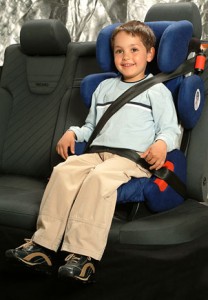A recent news story from Sturbridge highlights the seriousness with which lawmakers treat DUI charges involving children. A 24-year-old man from Southbridge is facing child endangerment charges after police arrested him with an open container of Four Loko with a 4-year-old boy inside of his vehicle at about 10:30 p.m. Another adult was reportedly in the vehicle but has not been charged with a crime.
The defendant allegedly had a blood-alcohol level of 0.14, almost twice the legal limit of 0.8. He was arraigned in Dudley District Court on the child endangerment charge along with charges of drunken driving and having an open container of alcohol.
In addition to the standard penalties for drunk driving, such as fines and the loss of his license, the defendant is also facing a number of penalties associated with the added child endangerment element of his alleged offense. In 2005 as part of Melanie’s Law, a separate criminal offense of driving while intoxicated with a child in the car under the age of fourteen was added to the existing OUI laws. Melanie’s Law enhanced the penalties for OUI offenses in Massachusetts.
 You can be charged with child endangerment for having a child in the car when you are arrested for operating a motor vehicle under the influence. Any penalties for this offense would be above and beyond the standard penalties for an OUI. Typically, a person facing a first time OUI child endangerment charge is facing up to 90 days in jail, a 1-year driver’s license suspension, and fines.
You can be charged with child endangerment for having a child in the car when you are arrested for operating a motor vehicle under the influence. Any penalties for this offense would be above and beyond the standard penalties for an OUI. Typically, a person facing a first time OUI child endangerment charge is facing up to 90 days in jail, a 1-year driver’s license suspension, and fines.
Courts typically treat matters involving children with a great amount of care. The child is only four years old. One example of the seriousness with which courts treat matters involving children is that a defendant facing this charge is not able to obtain a continuance without a finding (CWOF) from the court. A CWOF is often used as a compromise between prosecutors and defendants, which is not quite a guilty plea, but an admission of sufficient facts to that would find the person guilty. A defendant who enters into a plea agreement and gets a CWOF just needs to stay out of trouble for the time limit imposed by the CWOF and in many ways, it will be as though his or her case was dismissed, although it will still count as a prior offense in the case of any subsequent arrest.
OUI With Child Endangerment Laws
For anyone facing an OUI child endangerment charge, prosecutors must successfully prove the OUI element of the charge before they can impose the added penalties for having a child under fourteen in the car at the time of the OUI. In other words, if prosecutors fail to meet the burden of proof on the OUI element, then they have lost on the entire charge.
Anyone facing a serious charge like OUI with child endangerment is facing a complex case. Having an experienced attorney on your side can be a great benefit in this situation.

